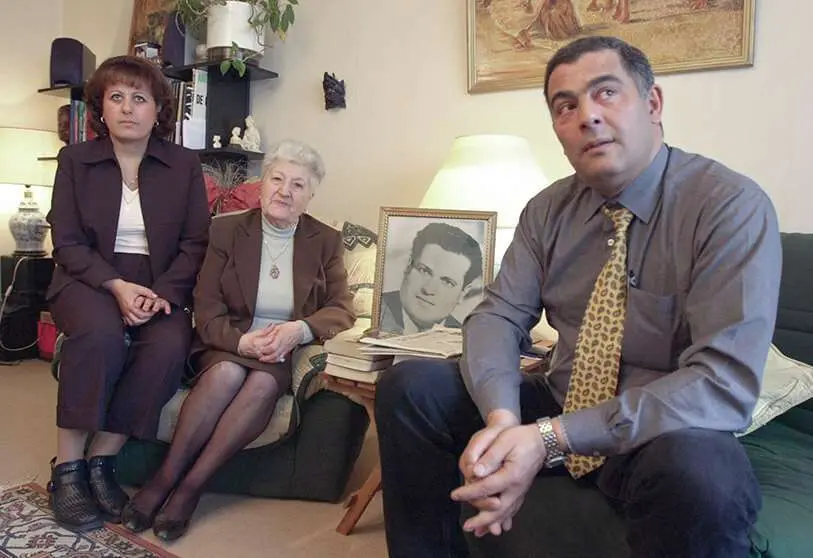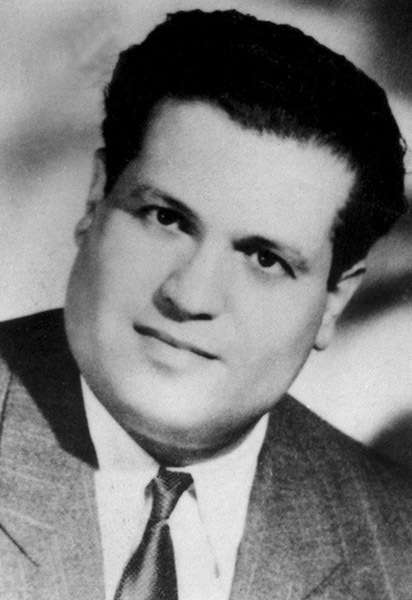Emmanuel Macron admits that lawyer Ali Boumendjel was "tortured and killed" by the French army

Emmanuel Macron acknowledged on Tuesday, "in the name of France", that the lawyer and nationalist leader Ali Boumendjel was "tortured and assassinated" by the French army during the Algerian war in 1957, the Elysée announced, a murder that at the time was passed off as suicide. This recognition, which the head of state himself announced to Ali Boumendjel's grandchildren when he received them on Tuesday, is one of the gestures of appeasement recommended by historian Benjamin Stora in his report on colonisation and the Algerian war, to resolve the tensions surrounding the memory of this conflict.
The equation is intellectual, political and commemorative: how can one recount the past when one occupies the highest office in France? How can one interpret and abound in the French narrative when one has not experienced, other than through reading, the imprint of the great dramas?
Born on 23 May 1919 into a wealthy Algerian family, Boumendjel was a brilliant law graduate with an open and humanist spirit, inspired by the Enlightenment, according to the Elysée, which also recognises his public interventions in favour of peace.
During the Battle of Algiers, Boumendjel was arrested by the French army, tortured and killed on 23 March 1957. Former army general Paul Aussaresses had already admitted that he had given the order to kill him and disguised the crime as suicide.

Emmanuel Macron had entrusted historian Benjamin Stora with a mission on "the memory of colonisation and the Algerian war", with the task of submitting a report with practical recommendations to the president in order to promote "reconciliation between the French and Algerian peoples". The attempt to reconcile the Franco-Algerian memory seems to be finding light at the end of the tunnel. Almost a month after its delivery to Emmanuel Macron, historian Benjamin Stora's report on the appeasement of memories of colonisation and the Algerian war seems to have found a political outlet.
This report was expected. On the one hand, because the subject is highly inflammable, so much so that it stirs passions, whereas Algeria has been independent for almost 60 years, and on the other hand, because of the personality of Benjamin Stora, who has devoted his career to the history of Algeria and Maghrebi immigration, he cannot be considered an insignificant observer, to the extent that his past commitments - to the extreme left in his youth, to the left in his mature years - cannot be entirely separated from his scientific work, which bears the mark of a principled anti-colonialism and an undisguised empathy with Algerian nationalism.
Stora's report proposes to appease the rival memories surrounding the Algerian war, which poison the bond between the two countries, as well as public debate within French society. The French media quoted the Elysée Palace as saying: 'The report does not mean a step towards an apology to Algeria'.

The challenge of this pacification of imaginaries torn from the 'rhetoric of the past' is geopolitical, as it concerns the perception, and therefore the influence, of France in the Mediterranean area. It is also a question of national cohesion, which has everything to gain from "the transition from a communitised memory to a common memory", in Stora's words. Seven million French people who had experienced, personally or in their families, the dramas of decolonisation in Algeria (pieds- noirs, immigrants, soldiers, harkis, etc.) had until then been torn apart in a "competition of victims" in which each "memory group" had erected its wound as "superior to the other". The time has come to break out of this "encirclement".
This is, in any case, the objective of the reflection entrusted to Stora by the head of state, who would like to succeed where his predecessors have failed. In his July 2020 mission letter to the historian, a renowned specialist on the Algerian war and North African immigration to France, Macron asked him to enlighten him on gestures likely to contribute "to the appeasement and serenity of those whom [the Algerian war] has wounded, (...) both in France and in Algeria".
At the same time, Algerian President Abdelmadjid Tebboune announced that he had appointed Dr Abdelmadjid Chikhi, director general of the Algerian National Archives Centre, to carry out 'truth' work on memory issues between the two countries.
Algerian authorities and historians claim that this period saw the murder of nearly 5 million people, as well as campaigns of displacement and looting of wealth, and the theft of thousands of documents and artefacts, some of which date back to the Ottoman era (1515-1830).
French officials repeatedly reiterated the need to turn a new page in relations, but Algeria repeatedly demanded official recognition of colonial crimes from Paris.

The Algerian government has repeatedly called for "recognition of France's colonial crimes". "We will not favour good relations to the detriment of history and memory, but problems are solved with intelligence and calm, not with slogans," said Algerian President Abdelmadjid Tebboune on Monday night.
Reconciliation between Paris and Algiers must be part of a mutual recognition that is "neither denial nor repentance", the French ambassador to Algeria, François Gouyette, said on Tuesday morning in an interview with the French daily L'Expression, which is close to the government.
With hindsight, it seems reasonable to see this date as a turning point in which both countries, through their presidents, have decided to put the issue of memory on the table. "It is a very good initiative. We cannot prolong situations that prevent the two countries, the two peoples, from confronting each other. We must try to overcome this situation, regardless of the pain felt by both sides. We also need to know what we mean by "memory" and "memory management".

In 1962, hundreds of thousands of Europeans from Algeria or relatives rooted for a century in North Africa who identified with France emigrated to Europe. They were the so-called Pieds-noirs, or Blackfeet.
Thus ended a war that had broken out in 1954 and left open wounds between France and the newly independent Algeria after 130 years of French rule. That conflict gave birth to the Fifth Republic, the current constitutional regime in France, and gave rise to resentments that have since fuelled the extreme right and home-grown French jihadism.

The war separated Algeria from France, but it also divided Algerians - the Harkis, who fought alongside French troops, were massacred at home and had to leave - and the French themselves. According to estimates cited in the report, around half a million people died.
In 1974, the French government decided to suspend the immigration of permanent workers, while recognising the right to asylum and family reunification. The idea of return had been a central element of Maghrebi emigration. However, with the closure of the borders and the official end of French migration policy, paradoxically the opposite happened, contributing to a definitive settlement. In the 1980s, the migration issue took on a new political-social hue and the need to grant rights to immigrants was emphasised, which provoked a xenophobic reaction from a sector of the French population. Since then, the question of French citizenship and identity has been at the centre of public debates, with 'integration' reforms reflecting deep divergences among immigrants as well as among the French population. The integration of Muslims in France has, for more than three decades, become one of the central issues in French politics and society.
Will this past finally pass? The imbroglio, being diplomatic (vicissitudes of the relationship between Paris and Algiers), identity-related (integration of young people of immigrant origin) and historiographical (insufficiently open archives), condenses a complexity that is, to say the least, delicate to unravel.
The drafting of the 160-page report is the culmination of a lifetime marked by colonialism. With the 60th anniversary of the end of the war and Algeria's independence approaching, Paris and Algiers have made this 'reconciliation of memories' a priority, and Macron and Tebboune have pledged to work together on this issue.









